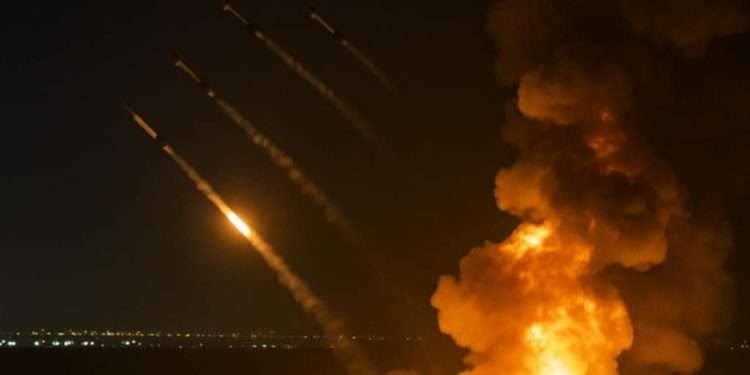Introduction
The escalating conflict between Israel and Iran has reached a dangerous tipping point in June 2025. With multiple airstrikes, drone attacks, and retaliatory strikes exchanged between both nations, the global community is alarmed over the possibility of a wider war in the Middle East. As tensions rise, the G7 leaders have convened urgent discussions to prevent a catastrophic escalation that could destabilize global markets, energy supplies, and international security.
The June 2025 Timeline of Escalation
🇮🇱 Israeli Strikes on Iran
On June 13, 2025, Israel launched a series of high-precision airstrikes targeting strategic military and nuclear sites inside Iran.
The attack involved advanced drones, F-35 fighter jets, and long-range missiles.
Key Iranian military infrastructures near Natanz, Isfahan, and Tehran were reportedly damaged.
🇮🇷 Iran’s Immediate Response
On June 16-17, 2025, Iran retaliated by launching ballistic missiles and drone strikes targeting Israeli military positions.
Several Iranian-backed proxy groups, including Hezbollah and militias in Iraq and Syria, have intensified operations against Israeli interests.
Casualties have been reported on both sides, though official numbers remain unverified.
Why This Conflict Threatens Global Stability
1️⃣ Global Oil Prices Surge
Brent crude prices jumped over $112 per barrel amid fears of supply disruptions in the Strait of Hormuz, through which 20% of the world’s oil supply flows.
Markets are bracing for continued volatility if military actions spread across the Gulf region.
2️⃣ Potential for Regional War
Neighboring countries like Lebanon, Syria, Iraq, and Yemen are already involved through proxy forces.
A full-scale conflict risks drawing in Saudi Arabia, the United States, Russia, and European powers.
3️⃣ Nuclear Tensions
Iran’s nuclear facilities are under renewed international scrutiny.
Concerns mount over possible attempts by Iran to accelerate its uranium enrichment following Israeli strikes.
G7 Emergency Response
The G7 leaders, currently meeting in Canada, have issued joint statements urging both sides to halt hostilities immediately.
Key Statements:

“A wider Middle East war must be prevented at all costs.” — US President
“We call on all parties to return to diplomatic negotiations under international supervision.” — EU Council President
“Uncontrolled escalation risks triggering global instability.” — Japan’s Prime Minister
In parallel, G7 nations are discussing new sanctions packages targeting Iran’s ballistic missile program and potential secondary sanctions against Russia for its increasing military cooperation with Tehran.
Global Reactions
CountryPositionAction🇺🇸 USAStrong support for IsraelMobilizing naval fleets in Persian Gulf🇷🇺 RussiaSupports IranWarns against Western intervention🇪🇺 EUCalls for de-escalationUrges diplomacy🇸🇦 Saudi ArabiaHigh alertDefensive measures deployed🇨🇳 ChinaNeutralOffers to mediate
What Lies Ahead?
The coming days will be crucial:
Any further military escalation could ignite a wider Middle East war.
G7 diplomacy will aim to freeze further aggression and push both sides toward negotiation.
The international community watches with rising concern as global markets react nervously to each new development.
Conclusion
The Israel-Iran conflict of June 2025 has become one of the most dangerous flashpoints in recent history. While G7 leaders work tirelessly to avoid a devastating war, the risk of miscalculation remains dangerously high. The world holds its breath as the Middle East stands on the brink.





